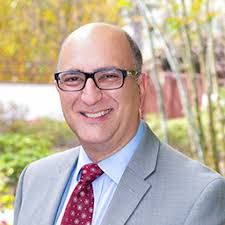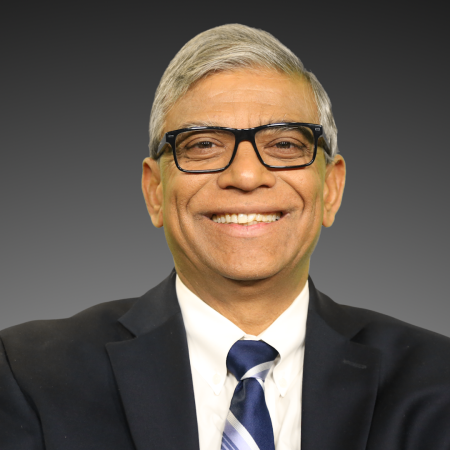- Center on Health Equity & Access
- Clinical
- Health Care Cost
- Health Care Delivery
- Insurance
- Policy
- Technology
- Value-Based Care
Equity in Care Delivery Still at Top of PCOC 2020 Agenda, Amid “Undue Burden”
Drs Joseph Alvarnas and Kashyap Patel, co-chairs of Patient-Centered Oncology Care® 2020, discuss what attendees can look forward to at the September 25 meeting.
In some ways, coronavirus disease 2019 (COVID-19) has changed everything about cancer care, and yet in other ways, the big questions of how to bring better care to people with cancer remain the same.
That’s how Joseph Alvarnas, MD, vice president of government affairs, senior medical director for employer strategy, and clinical professor, City of Hope, Duarte, California, sees things as he gets ready to chair the 2020 meeting of Patient-Centered Oncology Care®, which will take place September 25, 2020, in a virtual format.
Alvarnas

“The most pressing topic is, how do we construct systems of care that actually allow for effective and equitable delivery of the kinds of transformational cancer technologies that exist today?” Alvarnas said. “We're in the midst of a period of extraordinary innovation where much of what we knew about cancer 5 or 10 years ago, has been superseded by new knowledge, both in terms of diagnosis and in terms of therapeutics.
“What we've not done is build systems of care delivery and reimbursement that allows for these new technologies to be equitably, financially sustainably and humanly sustainably delivered to everyone who needs them,” he continued. “So, I'm looking forward to conversations that challenge our assumptions and provide us with a bit of a provocative push to think through what the future of cancer care might have to look like, how it might have to evolve in order to achieve the goal of truly equitable, sustainable, patient centered oncology.
Now in its ninth year, the premier meeting of cancer care stakeholders from The American Journal of Managed Care® moves from November to September and had been set to move from Philadelphia, Pennsylvania, to Nashville, Tennessee before COVID-19 struck. As with other meetings that have switched to an online format, PCOC now has an opportunity to perhaps reach more people than might be the case for an in-person format, said Alvarnas and co-chair Kashyap Patel, MD, CEO of Carolina Blood and Cancer Care Associates of Rock Hill, South Carolina.
Patel

“I definitely want my colleagues to access this meeting,” said Patel, who called the circumstances a “blessing” because doctors who want to take part will not have to travel and miss as much time from the clinic. “In a virtual meeting, I can essentially reshuffle my schedule here and there to accommodate my patients, and at the same time, learn the most.”
Patel praised the caliber of the faculty taking part in PCOC. This year’s group includes keynote speaker Alexandra Chong, PhD, who is the point person for the Oncology Care Model (OCM) at the Center for Medicare and Medicaid Innovation at CMS, payer representatives from the Blues, leaders from pharmacy benefit managers—along with their critics—and physician and administrative leaders from oncology practices large and small.
Chong, Patel said, is heavily involved with designing Oncology Care First, the successor model that is scheduled to replace OCM, now in June 2022. Patel said many concerns raised by community oncology leaders have been addressed, but the audience will still want to hear the details. “And, when do they plan to announce the new model?”
How cancer care is different
Alvarnas expects a theme of PCOC to be how cancer care is simply not the same as primary care or other specialties, and cost-cutting strategies that may work elsewhere don’t always apply. Harlan Levine, MD, of City of Hope will cover some of this in his talk on engaging employers.
“Narrow networks, for instance, don't necessarily translate into better cancer care,” Alvarnas said. “They can translate into more effective care in primary care. So I think the challenge is, how do those paying for health care and employers represent a diverse, but I will say very powerful group of stakeholders who have to navigate this idea of dealing with the differentiation of cancer care, and ensuring that their members receive the most effective care possible, while still managing the cost conundrums posed by extraordinary advances in cancer care.”
“By partnering with employers, you can help them deliver a deeper sense of what represents optimal care,” he said.
Panel discussions
The quality care movement is maturing, and with it, the rise of clinical pathways, which will be the topic of one panel. Alvarnas described this as a measure of protection in the era of innovation. He described pathways as a “degree of standardization” that “respects the unique biology of the patient.”
“Consistency is very important,” he said. Being from an academic center, Alvarnas understands the importance of ensuring that all care meets the same standards—and can be tested—once it leaves the academic walls. “That's what's empowering about the kinds of pathways that are based upon emerging iterative knowledge. It allows us to achieve greater sustainability of care and the ability for people, even though it’s far, far distant from an academic cancer center."
Patel, meanwhile, will chair a panel on chronic care management, a program developed with the Robert Wood Johnson Foundation starting a decade ago, with the idea that Medi-Cal beneficiaries with at least 2 chronic conditions were more likely to seek care in the emergency department because they lacked access to regular care, including a primary care physician. For oncologists who chose to embrace this approach, it has paid dividends during the pandemic. More so than most panels, Patel believes this one will give physicians practical advice.
During the pandemic, how do practices implement telehealth to check on patients? “I would ask the speakers to elaborate upon how to enroll patients. How do you create a care plan? How frequently do you call?” he asked.
The specter of COVID-19
COVID-19 will change the way PCOC takes place as well as the nature of the discussion themselves.
“COVID-19 has challenged far too much of our systems in society, and even society itself,” Patel said. “We've struggled to figure out how to move forward. And unfortunately an undue burden has been placed upon patients and families who are either beginning or in the midst of a cancer journey. Cancer patients constitute a particularly vulnerable population who are at greater risk from the perils and hazards of COVID-19. And what I'd like to learn is how our colleagues throughout the country have navigated this challenge and set of challenges imposed by this and how they've been able to transcend circumstances to ensure that patients continue to receive the care that they require, in a timely way that respects their needs.”
Alvarnas said despite the virtual format, he hopes to capture the dynamism of the deep conversations he has witnessed at previous meetings. One that stands out occurred years ago between Scott Gottlieb, MD, before he became FDA commissioner, and Kavita Patel, MD, after she had wrapped up her stint in the White House.
“I'm looking forward to this meeting as one that maybe allows us to kick it into a different gear of interaction, kick into a different kind of dialogue or a series of conversations, empowered by this immediacy, and this proximity, which paradoxically happens even at a distance,” Alvarnas said.
Exploring Racial, Ethnic Disparities in Cancer Care Prior Authorization Decisions
October 24th 2024On this episode of Managed Care Cast, we're talking with the author of a study published in the October 2024 issue of The American Journal of Managed Care® that explored prior authorization decisions in cancer care by race and ethnicity for commercially insured patients.
Listen
